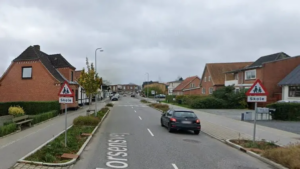Cheføkonomen i den italienske bank, UniCredit, den danskfødte Erik Nielsen, ser i sin søndags-analyse på den aktuelle politiske udvikling, hvor der i Europa virkelig har været gode og dårlige tendenser bare i en enkelt uge. Det mest positive er skridt i retning af en ny tysk regering mellem socialdemokraterne, De Grønne og de liberale. Det tegner også godt for europæisk politik og for flere investeringeri Tyskland og EU. Af positive toner er der også enigheden om en fælles selskabsskat på globalt plan på 15 pct., selv om det giver et tab for Irland, der har været et slags skattely. Men omvendt er der flere negative tendenser: En korruptionsaffære mod Østrigs kansler, Kurz. Polen vil ikke acceptere EU-domstolens fortrinsret. Storbritannien lægger op til handelskrig med EU på grund af Nordirland – trods den indgåede Brexit-aftale mellem UK og EU. Endelig kan der komme en geopolitisk magtkamp om Den internationale Valutafond.
Happy Sunday
What a few days it’s been in European politics!
– Austrian chancellor Sebastian Kurz – who as recently as July last year defended his restrictive stance towards the EU with a claim that some other member states are “kaputt” in their governance – stepped down after being named as a suspect in a corruption investigation (actually, “stepping aside to a shadow position” would be a more accurate term);
-the Czech election delivered a victory to the opposition which will likely spelled the end of PM Babis’ government;
-the Polish constitutional tribune ruled that part of EU law is incompatible with the Polish constitution (yes, that’s politics too);
– the Irish caved on their (bizarre insistence on a) right to be a tax haven; Germany took a huge step towards forming its next government – and the UK indicated its intention to reject this coming week the EU’s latest (and truly far-reaching) offer on the Northern Ireland Protocol, thereby significantly raising the risk of an outright trade war with the EU.
(After having heard Boris Johnson’s references to free movement, supply shocks and Brexit in his speech last week, I have become increasingly sure that EU confrontation is an explicit, if unannounced, domestic policy objective, whatever the economic and broader political costs, unfortunately.)
I won’t get through it all today, but will focus on three of these events (namely for Germany, Poland and Ireland), and then turn to this coming week’s IMF and World Bank’s annual meetings, which will discuss the outlook at this particularly tricky juncture of the global economy, and the appropriate policies and coordination – meetings to be done in the midst of the biggest crisis the institutions have faced in their more than 75 years of existence:
■ German politicians took a big step closer to forming a so-called Traffic Light coalition government under Olaf
Scholz. While all the important details of the coalition agreement, including on Europe, fiscal policy and investment,
still need to be agreed on, the prospect of a new government before Christmas is good news.
■ Poland took a big step away from Europe when its constitutional tribunal ruled that part of EU law is not compatible
with the Polish constitution. As an immediate consequence, EU funds to Poland will surely be held up, but more
importantly, it is a de facto exit road from the EU. A U-turn is needed, but will it come?
■ Ireland and a couple of other small countries signed up to the global minimum 15% corporate tax deal, which is
now going ahead between 136 countries. To paraphrase Neil Armstrong when setting foot on the moon in 1969:
“That’s one giant leap for the country (Ireland), one small step for mankind.
■ This coming week’s IMF meetings: The biggest topics of inflation and the green agenda will be discussed in the
middle of a deep institutional crisis.
https://www.research.unicredit.eu/DocsKey/economics_docs_2021_181346.ashx?EXT=pdf&KEY=C814QI31EjqIm_1zIJDBJAYud3xTRckplPguW6VVmWU=&T=1&T=1











